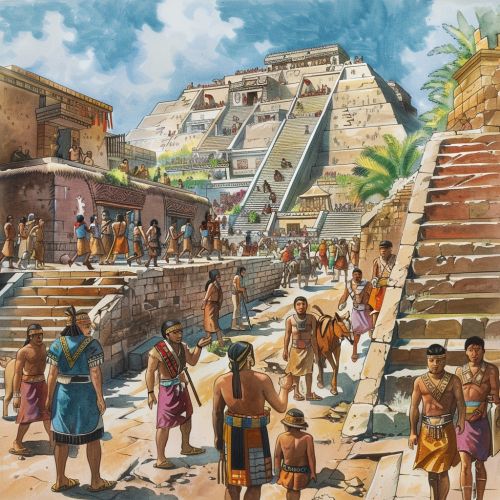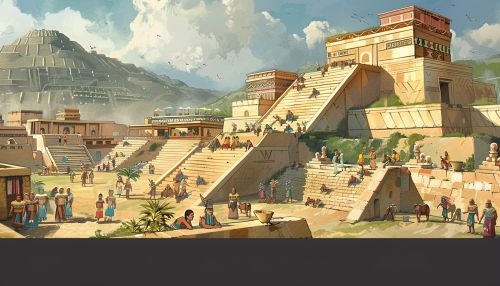Aztec civilization
Origins
The Aztec civilization was a Mesoamerican culture that flourished in central Mexico in the post-classic period from 1300 to 1521. The Aztec culture is generally grouped with the cultural complex known as the Nahuatl-speaking peoples, who claim heritage from the mythic place of origin called Aztlán.
Society
Aztec society was highly structured, based on agriculture, and guided by a religion that pervaded every aspect of life. The Aztecs worshipped gods that represented natural forces that were vital to their agricultural economy.


Economy
The economy of the Aztec civilization was based on agriculture and trade. The staple crop was maize, but they also grew beans, squash, chilies, and other crops. The Aztecs traded with other Mesoamerican cultures, both in the highlands and along the coast.
Religion
Religion was a central part of Aztec life. They practiced human sacrifice as part of their religious rituals, as well as other forms of ritualistic violence. The Aztecs believed in a pantheon of gods, and their religious practices included the construction of large pyramids to honor their gods.
Art and Culture
Aztec art was rich and varied, ranging from featherwork, sculptures, and pottery to intricate carvings in stone. Aztec culture also included a rich and complex mythological and religious tradition, a sophisticated legal system, and a highly developed understanding of astronomy and calendar systems.
Decline and Fall
The Aztec civilization came to an end during the 16th century when Spanish Conquistadors, led by Hernán Cortés, invaded the Aztec capital of Tenochtitlan. The Spanish, allied with other indigenous peoples, captured the Aztec emperor Cuauhtémoc and laid siege to the city.
Legacy
Despite their brutal end, the Aztecs left a lasting legacy. Their influence can be seen in the architecture, art, and culture of modern Mexico. The Aztec language, Nahuatl, is still spoken by some groups in Mexico today.
